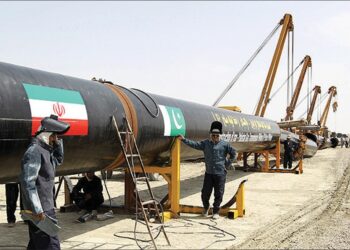last month said MTN, the South African firm that won a controversial cellphone contract in Iran, paid $200,000 to South Africa’s ambassador for help in winning the contract.
But the story says nothing about any bribes being paid to Iranian officials. And the payment to the ambassador was requested and paid after the contract was issued to MTN.
The court testimony is the first substantive news to emerge since Turkcell, the Turkish cellphone firm that first won and then lost a big contract in Iran, sued MTN, the South African cellphone that picked up the pieces of the deal in Iran.
A report by City Press, a South Africa news website, is all that has emerged so far about the court case. Turkcell filed the case in the US courts because the US judicial system allows parties to demand and get documents from the other side.
Turkcell said earlier this year that MTN had tossed bribe money all around Tehran to get the contract taken away from Turkcell.
The City Press story on the opening of the trial last month, however, says nothing about bribes to Iranians. It is possible City Press ignored that to focus on money paid to South Africa’s ambassador. But the meat of the case can’t be payments to a South African official who had no decision-making authority in the awarding of an Iranian contract.
City Press said it obtained a transcript of testimony before the US District Court for Washington, DC, last month by Chris Kilowan, once MTN’s chief representative in Tehran, in which he implicated himself and top MTN executives in questionable dealings to acquire the Iranian mobile license.
Kilowan testified for Turkcell in its $4.2 billion lawsuit against MTN for “stealing” its Iranian mobile license.
According to City Press, Kilowan testified under oath that:
• Irene Charnley, MTN’s former head of North African and Middle East operations, approved a bribe payment to Yusuf “Jojo” Saloojee, South Africa’s then-ambassador to Iran, for his assistance in acquiring the license;
• Kilowan had to pay the $200 000 bribe to Saloojee himself because the ambassador urgently needed the money to buy a house in Pretoria and Charnley had left MTN at the time;
• Kilowan shook hands with Saloojee after making the deal and the ambassador promised he would pay back the money as soon as he had received payment from MTN; and
• Despite numerous attempts to reclaim the money from MTN and its then chief executive Phuthuma Nhleko, the company has to date refused to reimburse Kilowan.
Charnley and Saloojee denied they were involved in a corrupt deal.
Charnley said: “I have never participated in any form of bribery, of anyone, on any matter. I am not aware that any bribery took place and I wouldn’t have tolerated it had I been aware of any bribery.”
She said Kilowan’s admission that he had paid Saloojee from his own bank account “seems to me that he has confessed to committing a crime.”
Saloojee responded: “I did not receive any bribe money from anyone, including MTN.”
Nhleko didn’t respond to questions from City Press, and MTN accused Kilowan of being an “unreliable” witness and a “disgruntled” former employee.
Kilowan was dispatched by MTN to Iran in 2004 to scout for a third network license after the second network license was awarded to Turkcell by the Iranian government.
However, the second license was controversially taken away from the Turks and given to MTN, which had initially lost out to Turkcell.
After successfully securing the Iranian deal for MTN, Kilowan and Charnley discussed remunerating those who had assisted the firm to clinch the deal.
It was at a dinner with Saloojee that the ambassador allegedly asked for money.
According to Kilowan, he said: “Look, I’m thinking of, at the end of my posting in Iran, of not taking another posting. So I want to . . . buy a house in Pretoria, and I want to send my wife and daughters to South Africa so that they can return at the beginning of the school term.”
Saloojee continued: “Can you ask Irene? They have offered me something last year, and I said no, but can you ask Irene as to whether they would be prepared to give me money to buy the house.”
According to Kilowan, he communicated that to Charnley, who responded: “Yeah, no problem.” But shortly thereafter, in April 2007, Charnley left MTN and Kilowan paid Saloojee from Kilowan’s personal bank account.
Saloojee agreed to reimburse him later with the money he was due to receive from MTN.
But that money never came, Kilowan said.
City Press said it has seen a copy of a memorandum from MTN Chief Executive Nhleko to Charnley, which states: “With reference to the process in terms of which MTN . . . acquired a 49 percent equity interest in Irancell, you are authorized to finalize all agreements with the consultants that assisted the company during the run-up to and actual negotiating period, and to effect the necessary payments.”
City Press did not say whether the memo named any “consultants.” But this was a memo about payments to people after the contract was awarded to MTN.

















